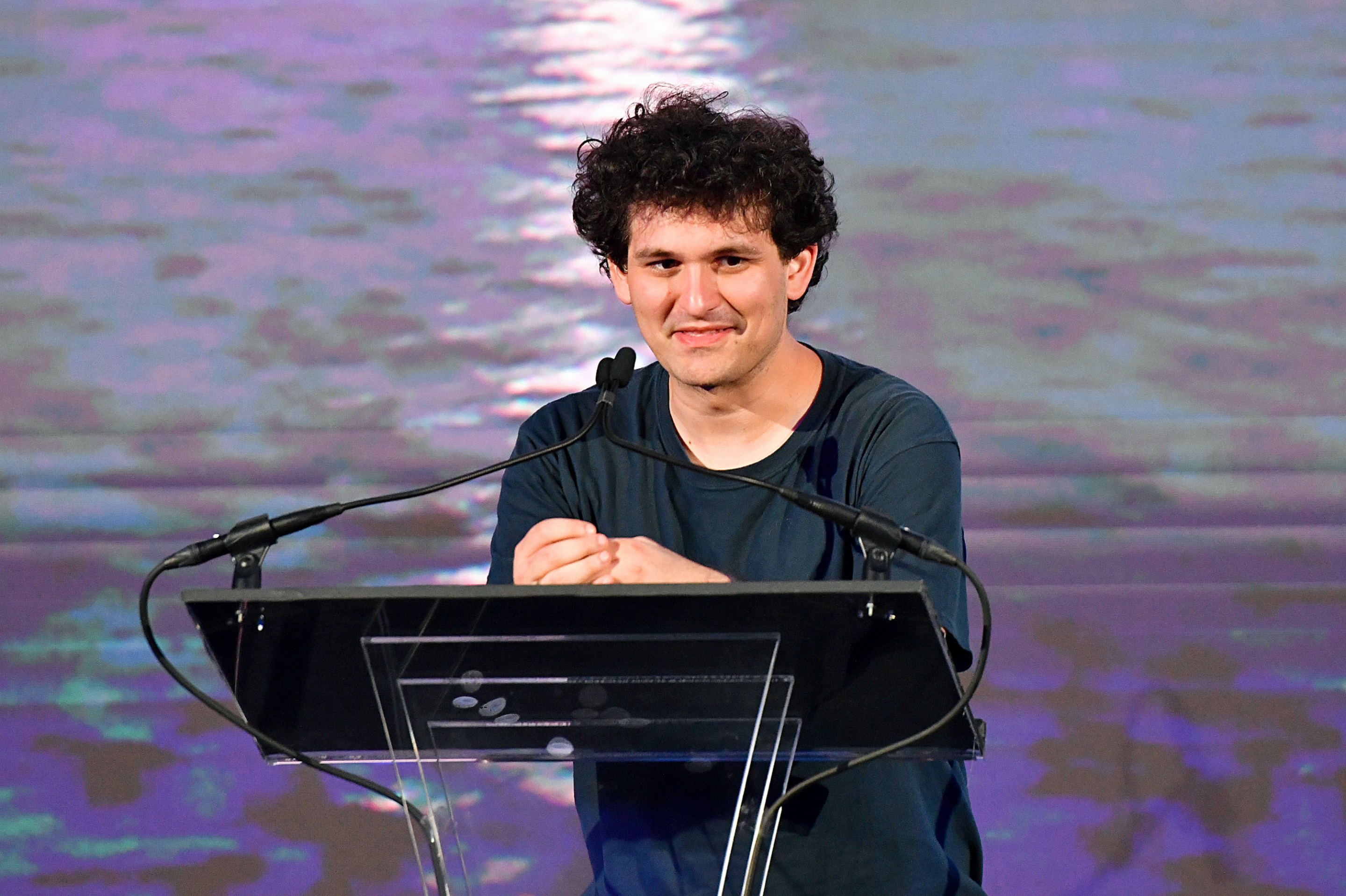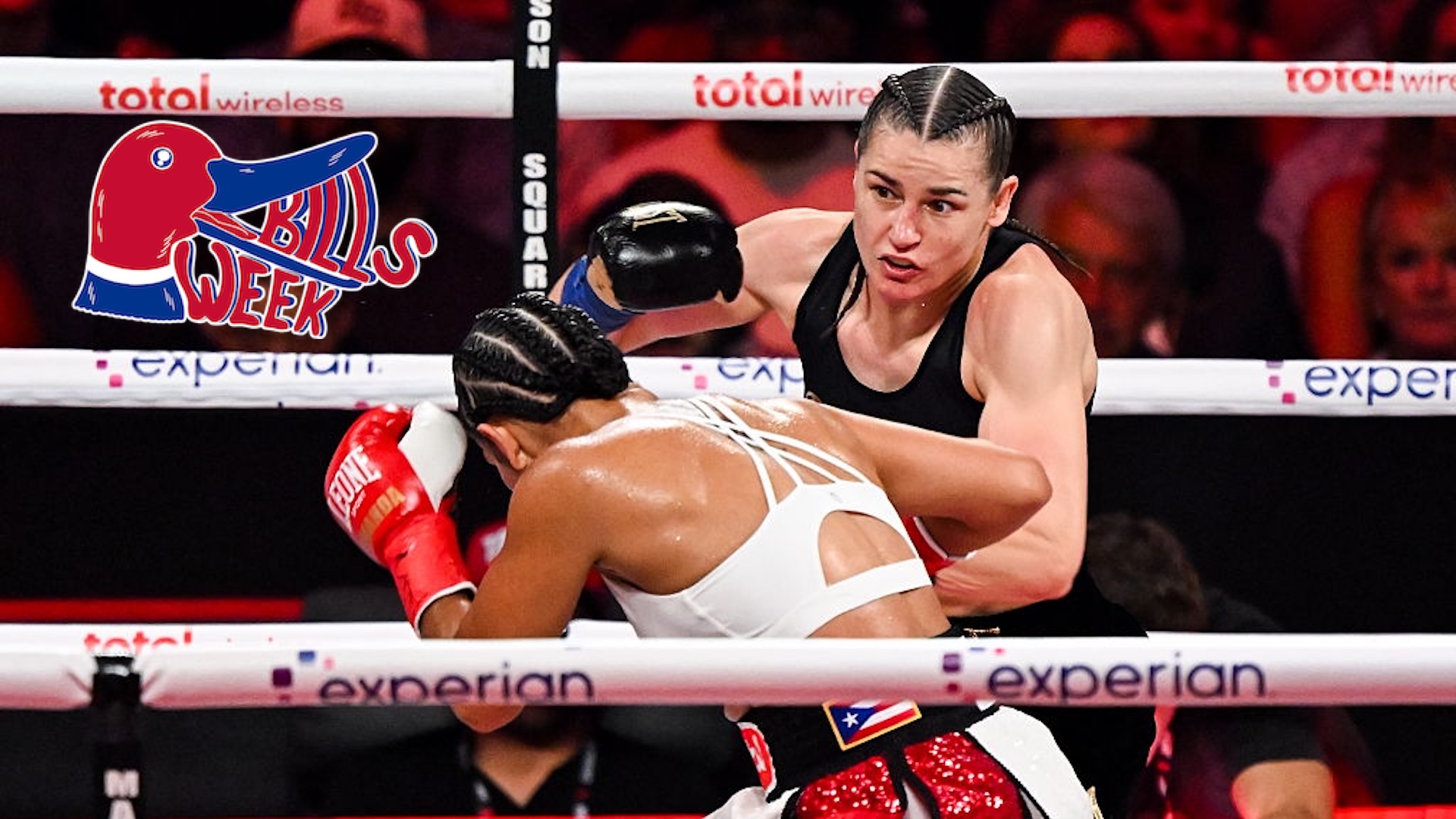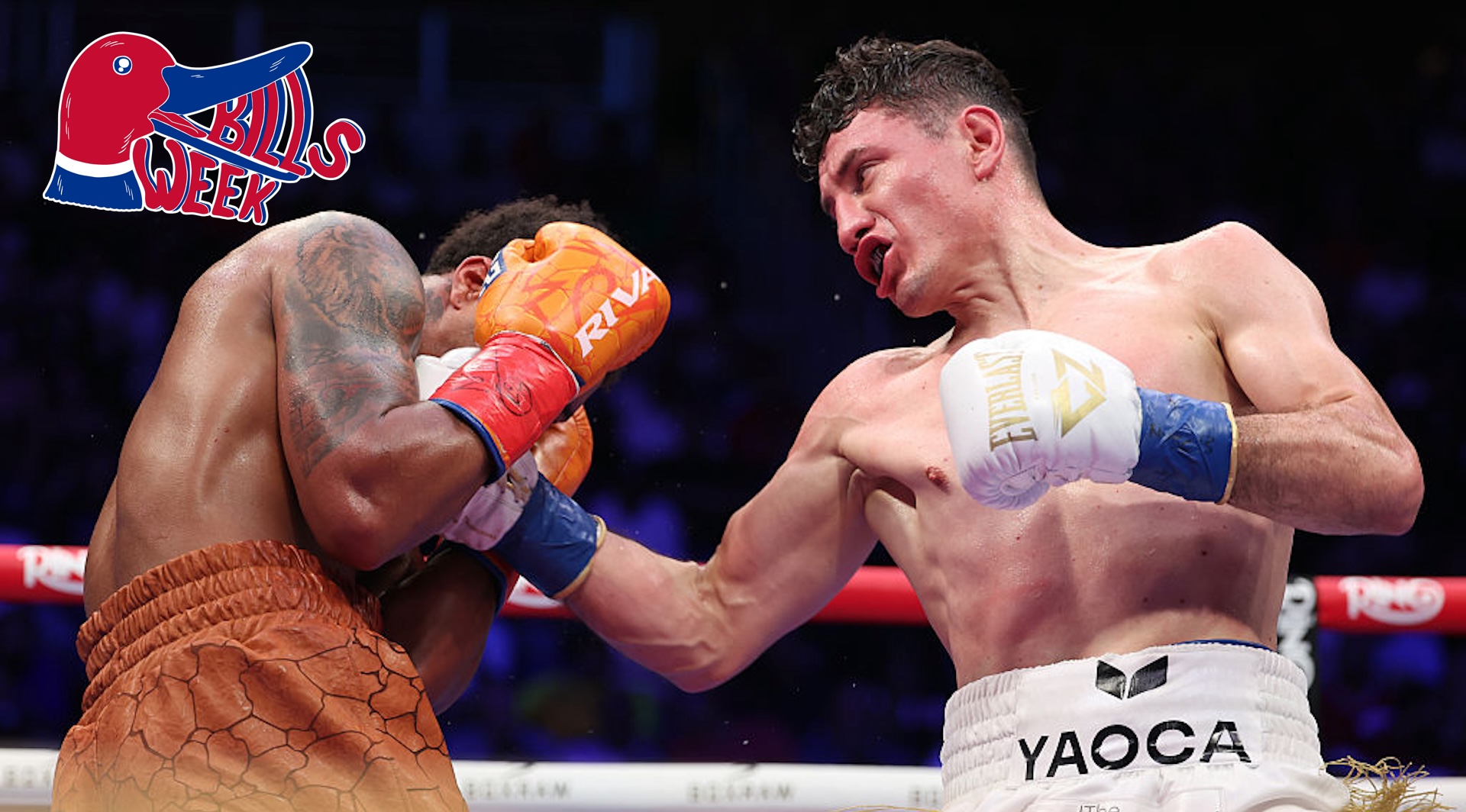Earlier this week, former crypto billionaire Sam Bankman-Fried was arrested by Bahamian authorities, on behalf of the U.S. government, on charges of wire fraud, money laundering, and other financial crimes. The charges stem from the admitted fact that Bankman-Fried's crypto company, FTX, used billions in customer money as a bank for his hedge fund, Alameda Research. Alameda Research spent this money, which was not theirs to spend, and when the entire scam blew up in spectacular fashion this fall, Bankman-Fried filed for bankruptcy, his companies swirled around the drain, and an untold number of people were left empty-handed, literally robbed of the money they had put into FTX.
Bankman-Fried's fortune also went to his family foundation, Building a Stronger Future, which doled out tens of millions to a number of groups aligned with its values, or willing to align themselves with its values in exchange for cash. These groups included several media companies: Vox, The Intercept, ProPublica, Semafor, and the non-profit Law and Justice Journalism Project.
It's hard to blame any news organization for taking money where they can get it. The news business is broken at practically every joint, and real solutions for fixing it require large-scale structural reforms. Turning down a shady billionaire's money won't get us to the systemic overhaul we need; on the other hand, paying close attention to exactly how this money shapes agenda-setting coverage, who it empowers, and what exactly happens when it goes away, can help make the case for why we need public funding for media, democratically controlled newsrooms, and radical transparency at every level of news production. In the wake of his bankruptcy and arrest, the news organizations who took grants or investments from Bankman-Fried have variously addressed what will come next.
Vox received $200,000 from Bankman-Fried's foundation for its "effective altruism-inspired" vertical called Future Perfect. (Effective altruism stems from utilitarian philosophy that understandably appeals to the world's richest people who want to "do good" without addressing any basic dispensation; Bankman-Fried was one of movement's highest-profile evangelists and his fall, along with his frank admissions about his cynical approach to philanthropy, has been a mask-off moment for the entire movement. Many philosophers and generalists alike have been alarmed about the growing influence of EA and this latest development validates many of these concerns.) In a recent article that's ostensibly about the "profound philosophical errors" that led to FTX's collapse, but which is really just an arrogant defense of EA and its priors, Vox reporter Dylan Matthews wrote:
This August, Future Perfect — the section of Vox you’re currently reading — was awarded a $200,000 grant from Bankman-Fried’s family foundation. The grant was for a reporting project in 2023, which is now on pause. (I should be clear that, under the terms of the grant from SBF’s foundation, Future Perfect has ownership of its content and retains editorial independence, as is standard practice for all of our grants.)
We’re currently having internal discussions about the future of the grant, mainly around the core question: What’s the best way to do good with it? It’s more complicated than just giving it back, not least because it’s hard to be sure where the money will go — will it go toward making victims whole, for instance?
I emailed three members of Vox's communications team as well as Matthews to ask about the grant. How much of the $200,000 grant has been spent already, and what did those funds go toward? Who is involved in the internal discussions about what to do with the funds? How is Vox deciding what "doing good" means in this situation? What is Vox's timeframe for deciding what to do with the funds? I received no response. (Update Dec. 19: A Vox spokesperson told Defector that "$14,000 of the grant funds were expended prior to the news of FTX's bankruptcy and suspected fraud. The project (and any additional expenditure of grant funds) remains on hold. If and when a restitution fund is created, Future Perfect intends to turn over the balance to that fund.")
ProPublica, a heavy-hitting investigative non-profit, received $5 million from Bankman-Fried in early 2022 to cover pandemic preparedness and biothreats (a palatable facet of one particular EA obsession called "longtermism," an idea that has extremely creepy and counterproductive implications), with $10 million more pledged to come over the next two years. In a November email to staff, ProPublica's president Robin Sparkman wrote that the grants were on hold and that it expected to have more clarity on the status of the $10 million it has yet to receive. I emailed ProPublica to ask about the funds. It's been more than a month since that email was sent; has ProPublica gained any more clarity? Has the first tranche of $5 million been spent fully? If so, how was that money spent? If not, what will ProPublica do with the remaining funds? A spokesperson told Defector: "We do not have any comment at this time."
The Intercept received a pledge of $4 million from Bankman-Fried, also to cover pandemic preparedness and biosafety. It received $500,000 in 2022 and was supposed to receive $250,000 more in December, with the remaining $3.25 million coming in over two years. In a November email to readers, acting editor-in-chief Roger Hodge wrote that the grant was on hold. I asked The Intercept about how the $500,000 was spent and whether Bankman-Fried's collapse amid criminal charges would make The Intercept more wary of accepting billionaire money in the future.
"In September 2022, The Intercept received $500,000 from Sam Bankman-Fried’s foundation, Building a Stronger Future, as part of a $4 million grant to fund our pandemic prevention and biosafety coverage. That grant has been suspended," a company spokesperson said.
I also asked about the company's uneven record of disclosing Bankman-Fried's financial support in its reporting. For example, in a Nov. 11 story about a House of Representative race in Oregon included this passage, with no mention of The Intercept receiving $500,000 to cover a main effective altruism hobbyhorse:
Of course, the fiasco in the neighboring 6th Congressional District also has House Majority PAC’s fingerprints all over it. There, progressive state representative Andrea Salinas entered the general election bruised from the most expensive primary contest in the nation after former cryptocurrency billionaire Sam Bankman-Fried and House Majority PAC teamed up in an over $10 million failed attempt to anoint political newcomer and effective altruist Carrick Flynn as the nominee. The unorthodox partnership appeared to be the result of a quid pro quo, as Bankman-Fried contemporaneously donated $6 million to the committee. House Majority PAC spent $1 million on Flynn and ended up spending over $3.25 million of the remainder helping Salinas win the general election in a seat that was considered safe earlier in the cycle. The DCCC also spent $1.75 million boosting Salinas. (Bankman-Fried was worth billions of dollars at the time; as of now, he appears broke.)
A spokesperson for The Intercept said: "The Intercept’s coverage of Sam Bankman-Fried’s political activities has been uniformly and consistently critical. The November 11 piece was not specifically about Bankman-Fried, though it did mention him. It was a mistake not to include the disclosure. The Intercept has now appended an editor’s note to articles that mention Bankman-Fried, whether they were published before or after the grant agreement."
Semafor, a dumb new media start-up supported to the tune of $25 million by a collection of ultra-wealthy individuals that included Bankman-Fried, is in a slightly different position. It did not receive a grant from the foundation; Bankman-Fried invested individually in the company's pre-seed round. According to a Dec. 2 memo from Semafor co-founder Justin Smith, Semafor's "pre-seed round was structured as a Simple Agreement for Future Equity (otherwise known as a 'SAFE'), without a lead investor. The structure of a SAFE means that as of today, Bankman-Fried does not hold actual shares of Semafor. If his interest is eventually converted into equity, he will hold a passive single-digit minority stake." The memo also said that the company "maintain[s] repurchase rights that may be triggered, at the option of the company, in the event an investor/stockholder engages in criminal activity or other detrimental behavior that damages our business."
The memo was sent before Bankman-Fried was arrested and charged with criminal activity. I asked Semafor if the recent developments would trigger the repurchase rights. Semafor spokesperson Meera Pattni did not respond.
The Law and Justice Journalism Project is also in a slightly different position. LJJP, whose mission is to "help reporters improve their reporting and published work on the criminal legal system in print, radio, and television" with the goal of addressing "mass incarceration," was launched earlier this year and funded solely by Bankman-Fried's foundation. LJJP founder and board member Jessica Brand told me that the foundation gave about $630,000, which mostly went to supporting journalists.
"LJJP was funded, for its first year, by the Building A Stronger Future foundation. Obviously, that means we are actively searching for funding for the future, and are determined to make sure that LJJP continues to exist," Brand said in an email. "We think our mission is critical—a lot of the criminal justice reporting around this past election cycle demonstrated that fact. Reporting about the legal system is incredibly hard. To do it well, journalists must understand trauma, data, substance use, mental health, and of course, systemic racism, to name a few things."
Rich people have always been involved in owning and funding media companies, and it's hardly damning that the companies that took money from Bankman-Fried don't know what to say about benefitting from money that was stolen from regular people. While for-profit and non-profit media organizations alike contort themselves to secure investment money and grants from rich people who either want to see a profit or see their pet causes get a little shine, companies that are actually owned by billionaires don't fare much better. Take the Washington Post, which is owned by Jeff Bezos, one of the richest people on Earth. The paper's publisher Fred Ryan just announced layoffs in a town hall with employees, and then refused to answer any questions about it.
Today at The Washington Post town hall meeting, publisher Fred Ryan walked out, refusing to answer questions after dropping a bomb that there will be targeted layoffs. Proud of my @PostGuild colleagues for standing up and asking them anyway. pic.twitter.com/sfFeN3KHG6
— Jaclyn Peiser (@jackiepeiser) December 14, 2022
(If anything good came of this particularly egregious boss behavior, it's a renewed interest in collective labor power at the Post. Several of the paper's leading bylines, including political reporters Tyler Pager, Ashley Parker, and Josh Dawsey, who evidently couldn't be bothered to consort with the paper's union before layoffs were announced, decided to join the Guild, the Daily Beast reported.)
The problem with Sam Bankman-Fried giving money to news organizations isn't that he somehow bought their loyalty or influenced their coverage, as some disingenuous commenters have suggested. The problem is that the investments and grants he peddled helped to solidify an economic system in which media organizations see their best option for staying afloat in begging for crumbs from ultra-wealthy benefactors. Money can be blinding, even to the eyes of people who are truly committed to practicing good and adversarial journalism. When someone puts millions of dollars on the table, it's easy to grab it without hesitation. Because where else is it going to come from? And what's the worst that could happen, anyway?
Now we know what one worst-case scenario looks like: journalists having their work directly funded by a thief. Besides the obvious lesson to be drawn from Bankman-Fried's support of media organizations—billionaire philanthropy is just another play for power and influence—this much seems clear: Patronage is no road to salvation for the media industry. As the constellation of rich people, venture capital funds, and foundations upon which the industry relies on for survival grows, so too does the likelihood that a meaningful portion of it will end up holding millions of dollars in stolen money, and no idea what to do with it.
Correction: An earlier version of this post misidentified the Editor-in-Chief of The Intercept and the president of ProPublica.







